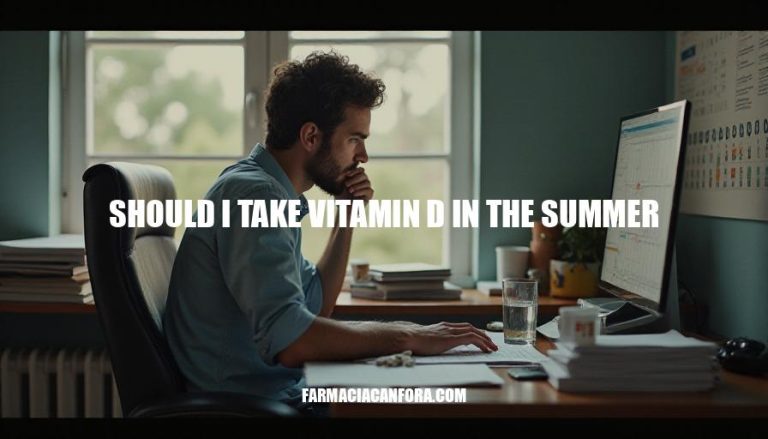


Vitamin D is super important for our overall health, immune system, bone strength, and muscle performance. But here’s the thing: our bodies can actually make vitamin D when we’re exposed to sunlight. So, should we still take supplements during the summer months?
It might seem like a no-brainer, but it’s not that simple. Lifestyle, where you live, your skin type, and even how much sunscreen you use can affect how much vitamin D your body makes from sunlight. We need to figure out if getting more sun means we don’t need supplements anymore.
Exposure to sunlight is the primary determinant in summer supplementation. Ultraviolet B (UVB) radiation stimulates the skin to synthesize vitamin D, but time spent outdoors, use of sunscreen, and skin tone influence synthesis efficiency. Individuals who avoid direct sun or frequently apply sunscreen may still require supplementation despite seasonal exposure.
Lifestyle factors, such as work environment and activity levels, contribute significantly.
Indoor professions or preference for shade limit UVB exposure, reducing natural vitamin D production. Those engaging in outdoor activities without excessive sunscreen application typically generate sufficient levels.
Geographic location dictates sunlight intensity and duration. Northern latitudes experience weaker UVB radiation, potentially insufficient for adequate vitamin D synthesis.
Urban settings with limited direct sunlight due to tall buildings further restrict exposure, making supplementation more relevant.
Personal health conditions, including metabolic disorders, obesity, and malabsorption syndromes, affect vitamin D levels. Certain conditions impair absorption or conversion, leading to deficiencies despite seasonal exposure. Individuals with darker skin require more sunlight for adequate synthesis due to increased melanin, increasing the likelihood of supplementation necessity.
Assessment of these factors determines whether vitamin D supplementation remains beneficial during summer.
Whether to take vitamin D supplements during the summer months is not a straightforward decision, as it depends on various individual factors.
These include lifestyle habits, skin type, sunscreen use, geographic location, work environment, activity levels, and personal health conditions.
Ultimately, the decision to take vitamin D supplements in the summer depends on a person’s unique circumstances. It is recommended that individuals consult with a healthcare professional to assess their individual needs and receive tailored advice.
Vitamin D remains an essential nutrient for overall health, immune system function, bone strength, and muscle performance, making it crucial to prioritize its adequate levels regardless of the season.